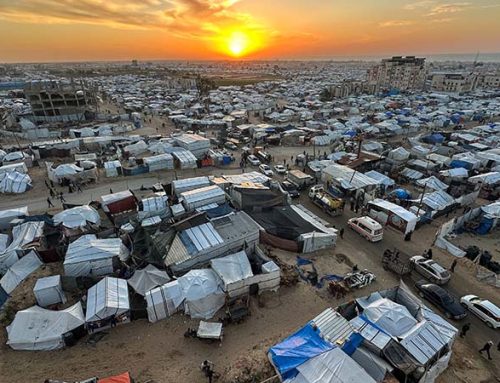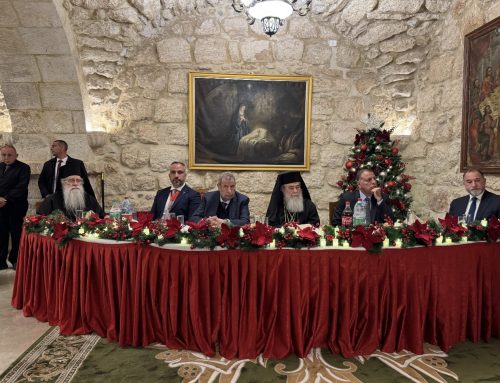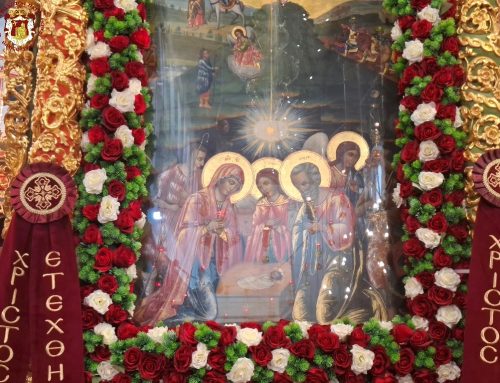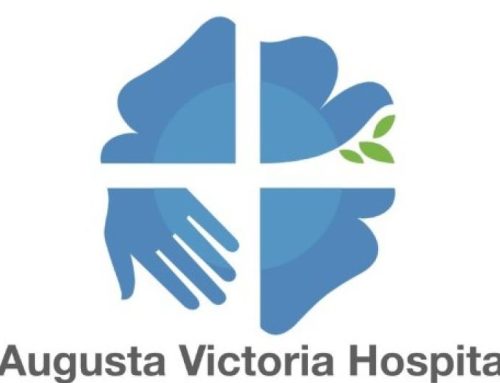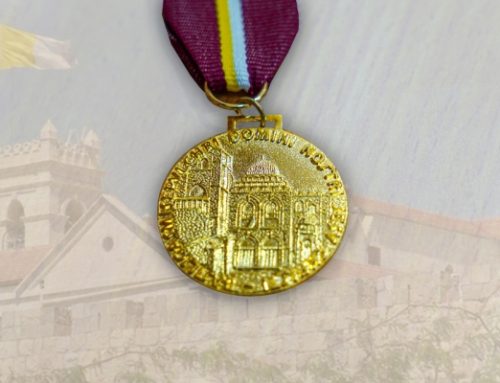Caritas mobile medical teams in Gaza are serving in 5 different new locations, in the aftermath of the conflict that began December 27. The teams are delivering primary and emergency health care services that include treatment for injuries, generalized pain and mental health conditions. They are also performing minor surgeries, and making referrals to specialized care facilities.
Caritas
The mobile medical team is made up of primary health care practitioners who are experienced in overseeing health service delivery in post-conflict settings. Using primary health centers as their base of operation, the teams are traveling to communities to address the needs of underserved and affected populations in northern Gaza.
With hospitals beginning to discharge large numbers of patients, primary health care centers are going to be critical to the ongoing care of the thousands of Palestinians who were injured in the conflict. More than 40% of primary care clinics were damaged in the conflict and most are understaffed, making Caritas mobile medical team outreach more important. Caritas mobile clinic is helping to alleviate some of the pressures at local hospitals and clinics. In addition, the clinics are offering psychosocial support bringing health and psychosocial services to the people where they live and conducting referrals for cases in need of comprehensive care. In a rapid assessment of psychosocial needs in
In a rapid assessment of psychosocial needs in Gaza, Caritas medical team found levels of psychological stress, shock and grief common among survivors of conflict. If left unaddressed, these conditions could lead to larger mental health issues that often emerge into depression, anxiety, emotional trauma, family disintegration and domestic violence. The assessment also found children to be among those most affected by the conflict. Gazan’s already fragile public health infrastructure has been overburdened by the number of casualties, making humanitarian intervention all the more crucial. Caritas medical team described the challenges that were facing them during the first days: Impaired access to clean water, electricity, and sewage disposal that combined with overcrowded housing carry grave risks for the outbreak and spread of illness. Maha Al Omari our counselor in Gaza has been visiting people along with the staff in order to assist the patients through their trauma. Many of the cases that were found involved mostly children. Some of the specific cases that were evaluated dealt with eating disorder, insomnia, chronic fear, bed wetting, disorientation and trauma. Maha, has been working to help children and parents learn how to cope with these traumas through therapy.
This survey is aimed at identifying psychosocial difficulties that women are facing in the aftermath of the conflict, providing an overview on health and maternal health services that were available to women during the time of the war and identifying women’s immediate needs especially in the areas of social and psychological support. The surveys were based on qualitative methods.
The reports highlight the following findings:
Gaza New School:
Mrs. Asmahan Sultan is 48 year old mother of seven from Beit Lahya. Her home was demolished during the attacks and now she is a resident in Gaza New School. During Caritas teams visit to the schools to conduct check up on the patients Asmahan was forced to be suffering with constant abdominal pain due to the fear that she went through during the war on Gaza.
|
Disease |
Trauma |
Bed Wetting |
Eating disorders |
Insomnia |
Disorientation |
Chronic Fear |
|
Number |
12 |
20 |
6 |
7 |
4 |
4 |
Al- Shati’ School:
In this school lives1500 people and in every room live five families. Their life is not easy, they live with the extreme necessity and even that they barely have. “Most of the cases in this school are similar; it is either a mother having a nervous breakdown because of loosing a son, daughter, husband and everything else she has worked for all her life. The things they have seen have traumatized them,” Maha explains.
Khoulod Murad, a 12 year old girl began crying when I began speaking to her, she said: “I have been wetting my bed since a rocket fell in my house while I was sleeping. Since that incident I can not stop wetting my bed.”
As for Khoulods’ sister Woujdan who is 17 years old she has stopped talking after the rocket fell in their house.
|
Disease |
Trauma |
Bed Wetting |
Eating disorders |
Insomnia |
Disorientation |
Chronic Fear |
|
Number |
4 |
9 |
2 |
11 |
6 |
6 |
A medical Day at Beit Hanoon:
In such crisis when the need for medical treatment is vital, our team organizes medical day where check ups and treatment are for free. During Gaza war our medical team found it significant to organize a medical day at Beit Hanoon. Our counselor Maha accompanied the team in order to look after the psychological health of the people.
|
Disease |
Trauma |
Bed Wetting |
Eating disorders |
Insomnia |
Disorientation |
Chronic Fear |
|
Number |
2 |
35 |
7 |
8 |
8 |
3 |
Caritas Clinic:
Many people come to Caritas clinics in order to benefit from Caritas medical expertise and services. So, sometimes the services of Caritas team skip the medical services and become humanitarian services. Our clinics are open to the children, the families and whoever feels the need to talk or to take a psychological tip. Counseling session are done to children and the have the chance to play in the play room of the clinic where games are available and cartoon videos are shown.
|
Disease |
Trauma |
Bed Wetting |
Eating disorders |
Insomnia |
Disorientation |
Chronic Fear |
|
Number |
6 |
13 |
5 |
10 |
7 |
8 |

